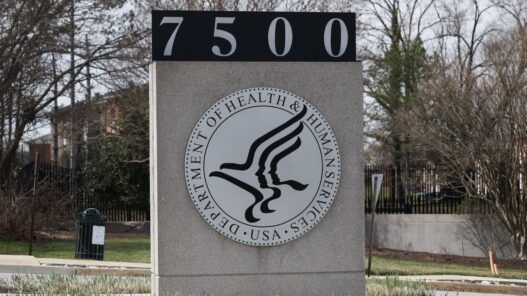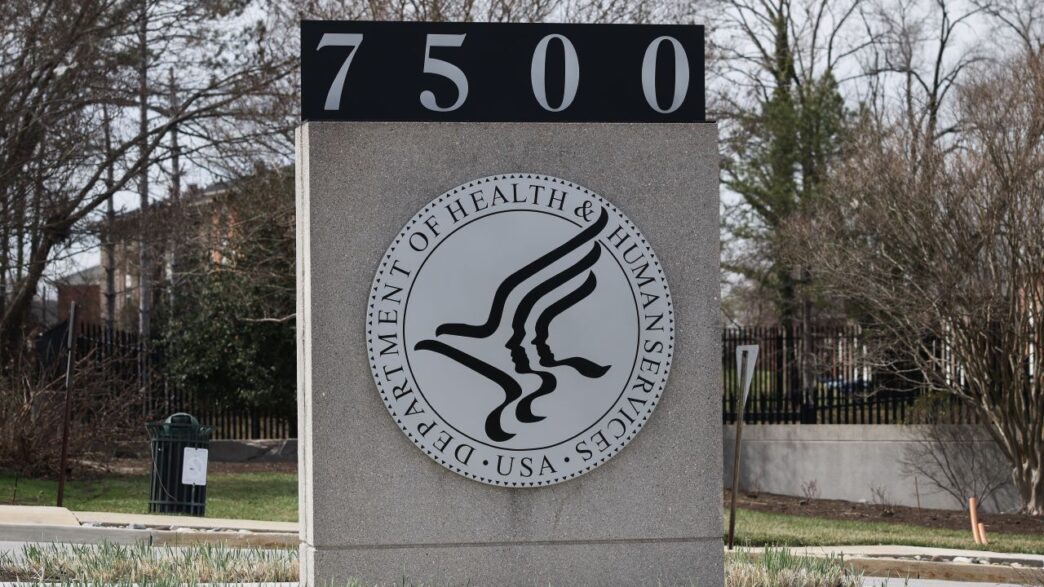President Donald Trump signed Republicans’ signature package of tax cuts and spending into law last week, which has significant implications for federal healthcare programs and Medicaid.
The One Big Beautiful Bill Act (OBBBA) passed the House and Senate along party-lines, by narrow margins given Republicans’ thin majorities in the two chambers. It includes about $1.2 trillion in spending cuts over a decade, largely from changes to spending on healthcare programs.
The Congressional Budget Office (CBO) estimates that as a result of changes to healthcare policies under the bill, the number of people without health insurance would be 11.8 million higher in 2034. That figure includes an estimated 1.4 million people without verified citizenship or valid immigration status to receive Medicaid in 2034.
Reforms to federal healthcare programs in the bill were a significant source of controversy and an area in which the bill’s opponents focused their criticism. Here’s a look at some of the key changes OBBBA makes to federal healthcare policy:
EXPERTS SAY MEDICAID CHANGES IN ‘BIG, BEAUTIFUL BILL’ ARE ‘COMMON SENSE’ FOR HEALTHCARE POLICY
Medicaid is a joint federal-state program to provide health insurance coverage to low-income Americans, with both the federal and state governments sharing in the costs. Previously, Medicaid enrollees weren’t subject to a federal work requirement — though some states have implemented work requirements.
OBBBA establishes a requirement that able-bodied adults who aren’t otherwise exempted from the requirement to complete at least 80 hours per month, or 20 hours per week, of community engagement activities to remain eligible for Medicaid. They could complete one or more of four qualifying activities to maintain eligibility.
Qualifying activities that satisfy the work requirement include working, participating in a work program or community service, enrolling in an education program, or having a monthly income that isn’t less than the applicable minimum wage requirement multiplied by 80 hours.
REPUBLICANS DEFY FISCAL CRITICS TO PUSH THROUGH TRUMP’S SIGNATURE ‘BEAUTIFUL’ TAX CUTS
The bill also creates a federal requirement for nonpregnant, nondisabled, childless adults between the ages of 19 and 64 to complete at least 80 hours of community engagement activities prior to their initial application to be eligible for Medicaid.
Some groups are exempt from community engagement requirements, including veterans with a disability rated as total, individuals who have special medical needs or certain disabling conditions — as well as parents, guardians and caretakers of children under 14 or disabled individuals, among others.
States are also permitted to grant good cause exemptions to the community engagement requirement for short-term hardships that arise.
Short-term hardships include receiving healthcare services on an inpatient basis at a hospital, nursing facility, or similar facility; residing in an area covered by a presidential disaster or emergency declaration; living in areas with an unemployment rate above the lesser of 8% or 1.5-times the national unemployment rate; or must leave their community for an extended period for medical services not available where they live.
OBBBA reforms a policy implemented under the Affordable Care Act, commonly known as the ACA or Obamacare, which allowed states to expand Medicaid eligibility to cover more Americans with enhanced federal financial support covering the cost of the broader coverage for two years post-expansion.
The ACA allowed states to expand Medicaid eligibility to adults earning up to 138% of the federal poverty level (FPL), which is about $21,600 in 2025. As of this year, 40 states and the District of Columbia have expanded Medicaid, while 10 states have not, according to the Kaiser Family Foundation.
The five-percentage point increase to the traditional Federal Medical Assistance Percentage (FMAP) is eliminated for states expanding Medicaid under the bill.
GET FOX BUSINESS ON THE GO BY CLICKING HERE
The FMAP for Medicaid expansion expenditures for states that provide state-based Medicaid coverage to unqualified immigrants is reduced from 90% to 80% under the new law.
Under the OBBBA, states are required to conduct eligibility redeterminations once every six months for individuals enrolled in Medicaid through the ACA’s Medicaid expansion — rather than once per year under prior law.























